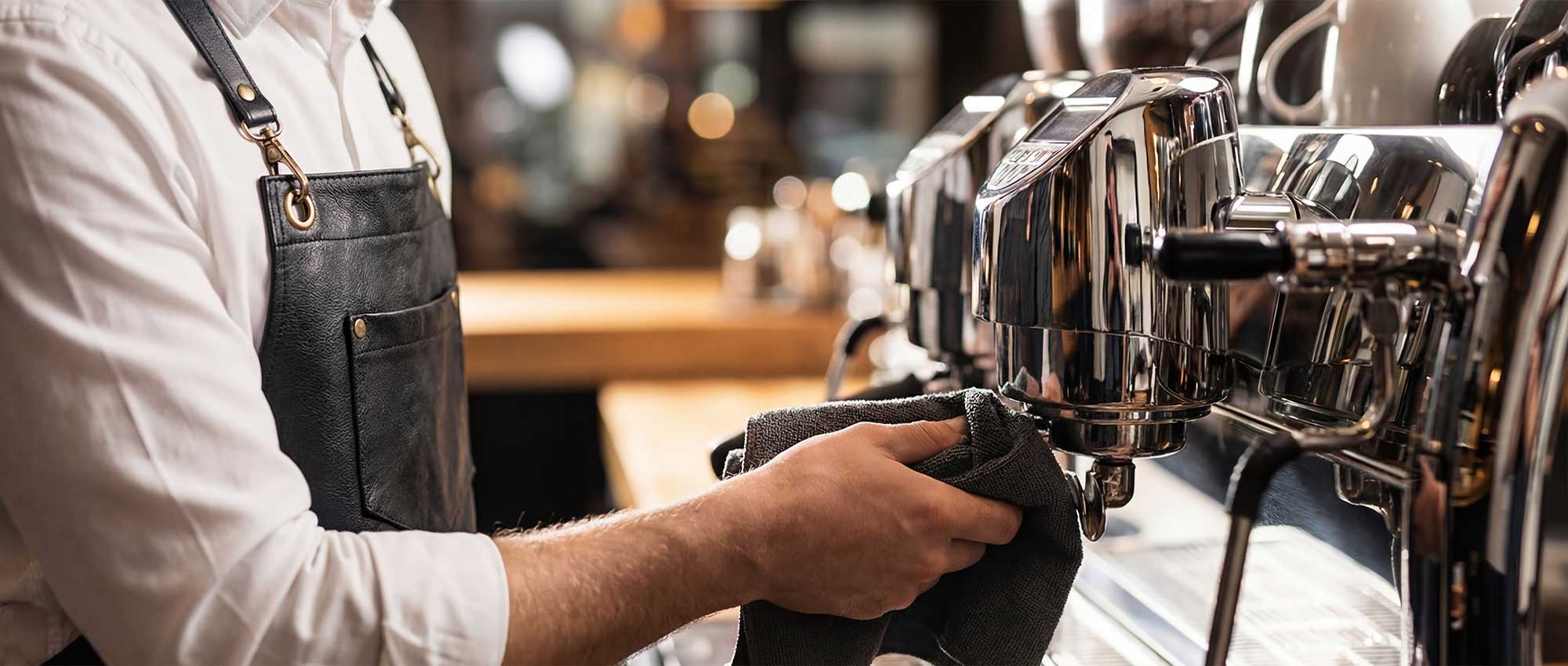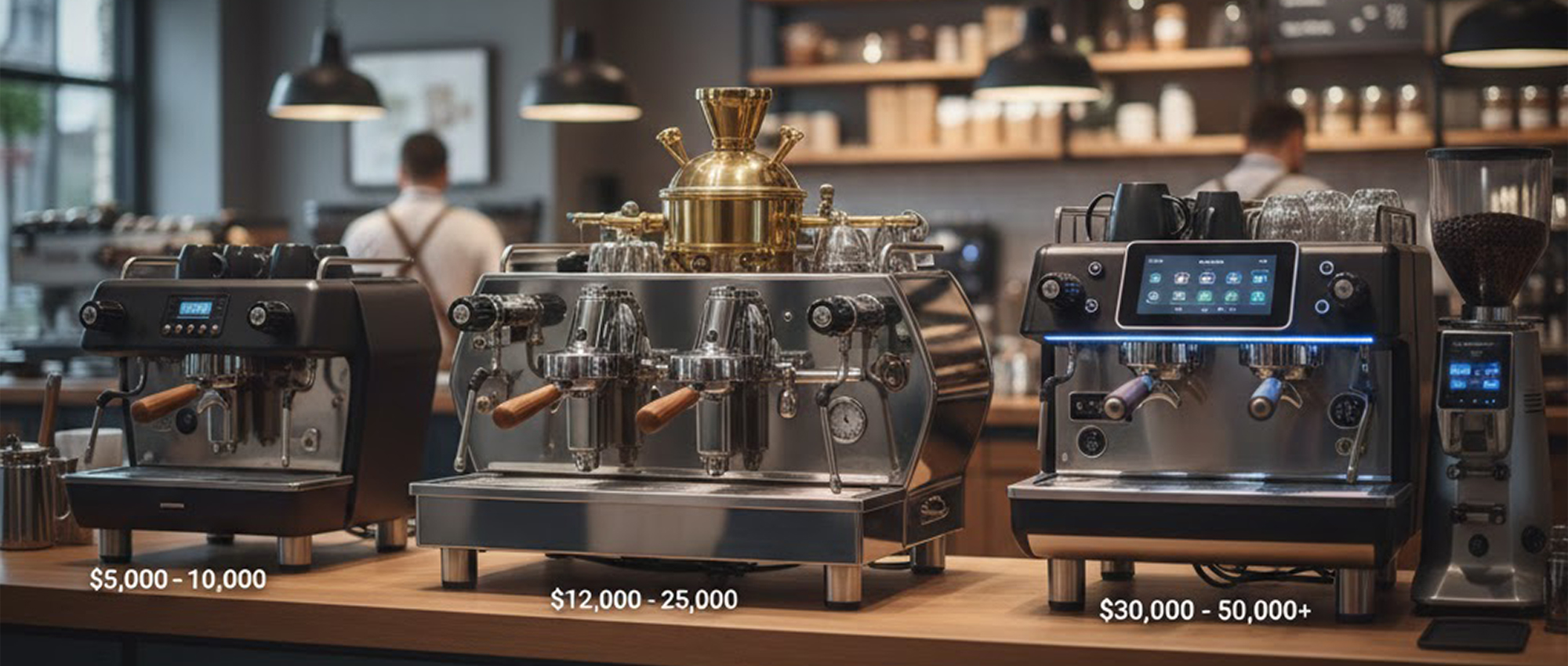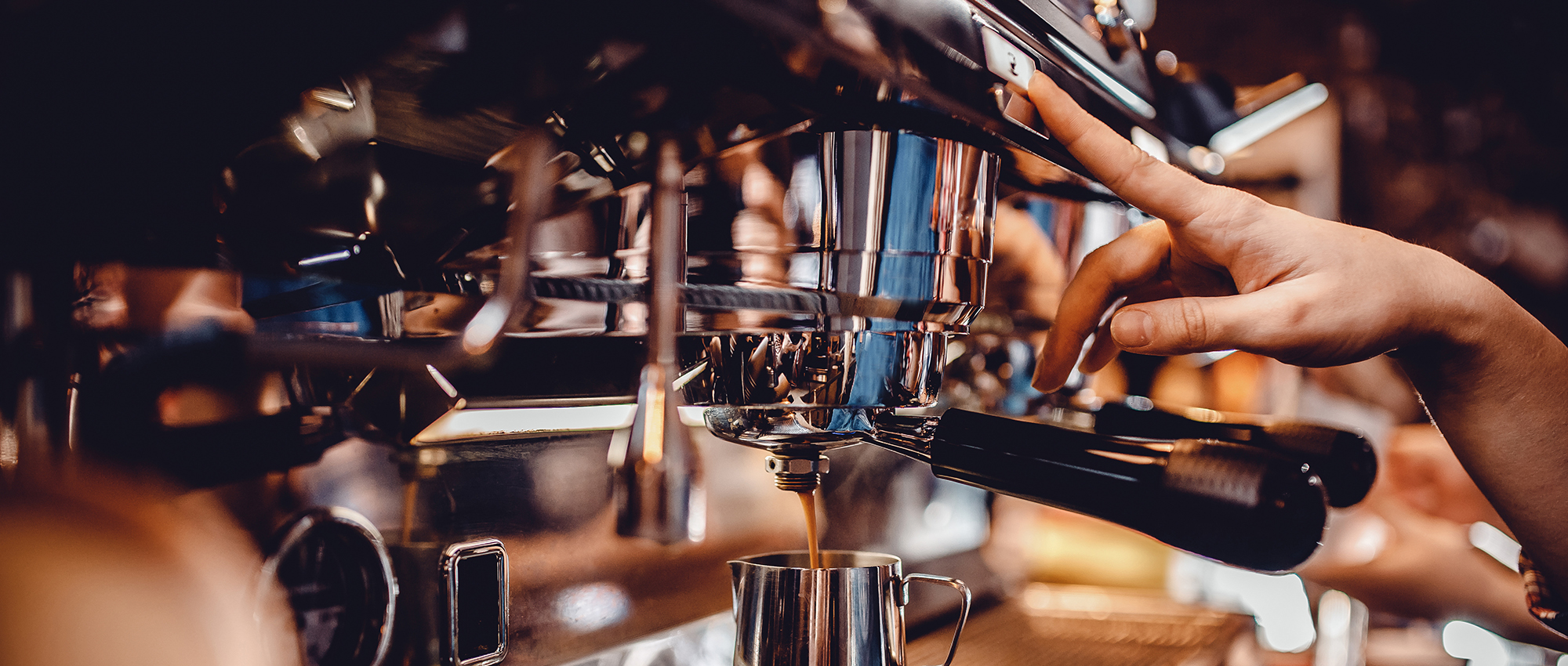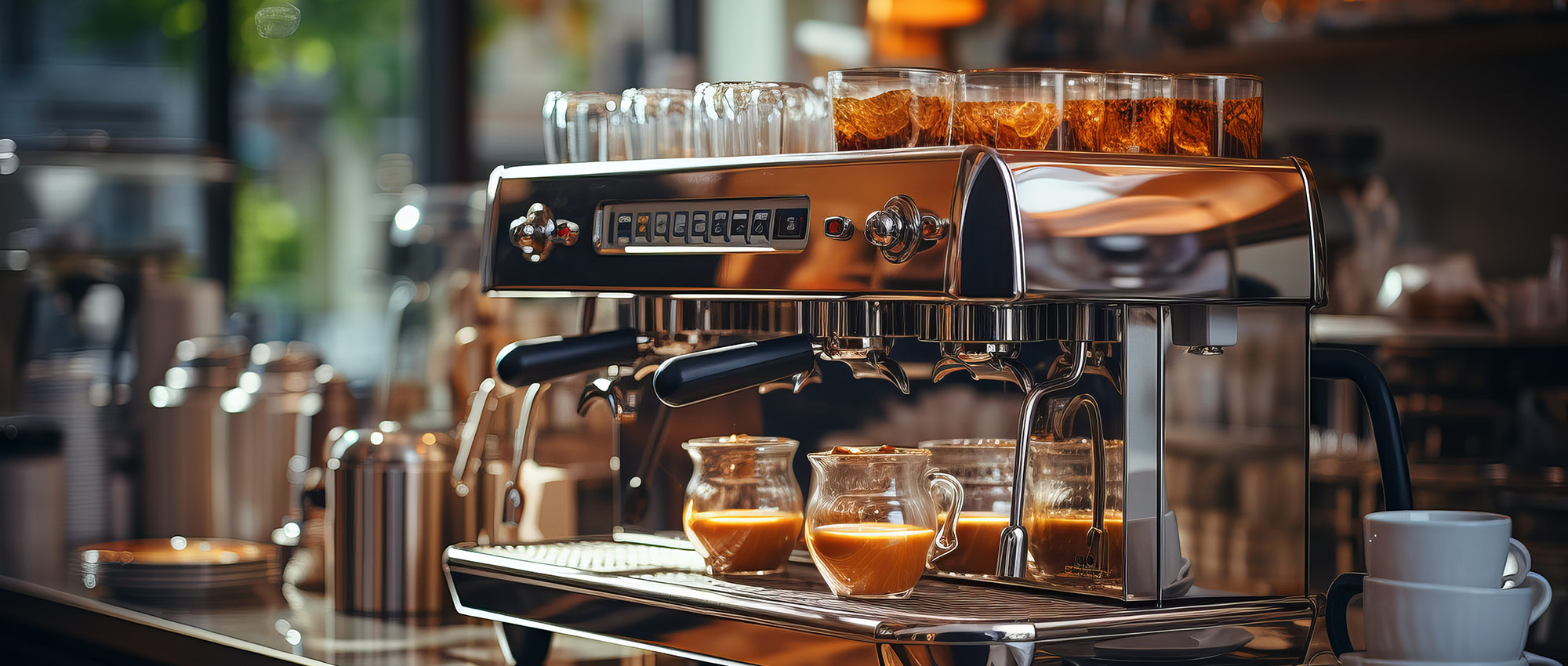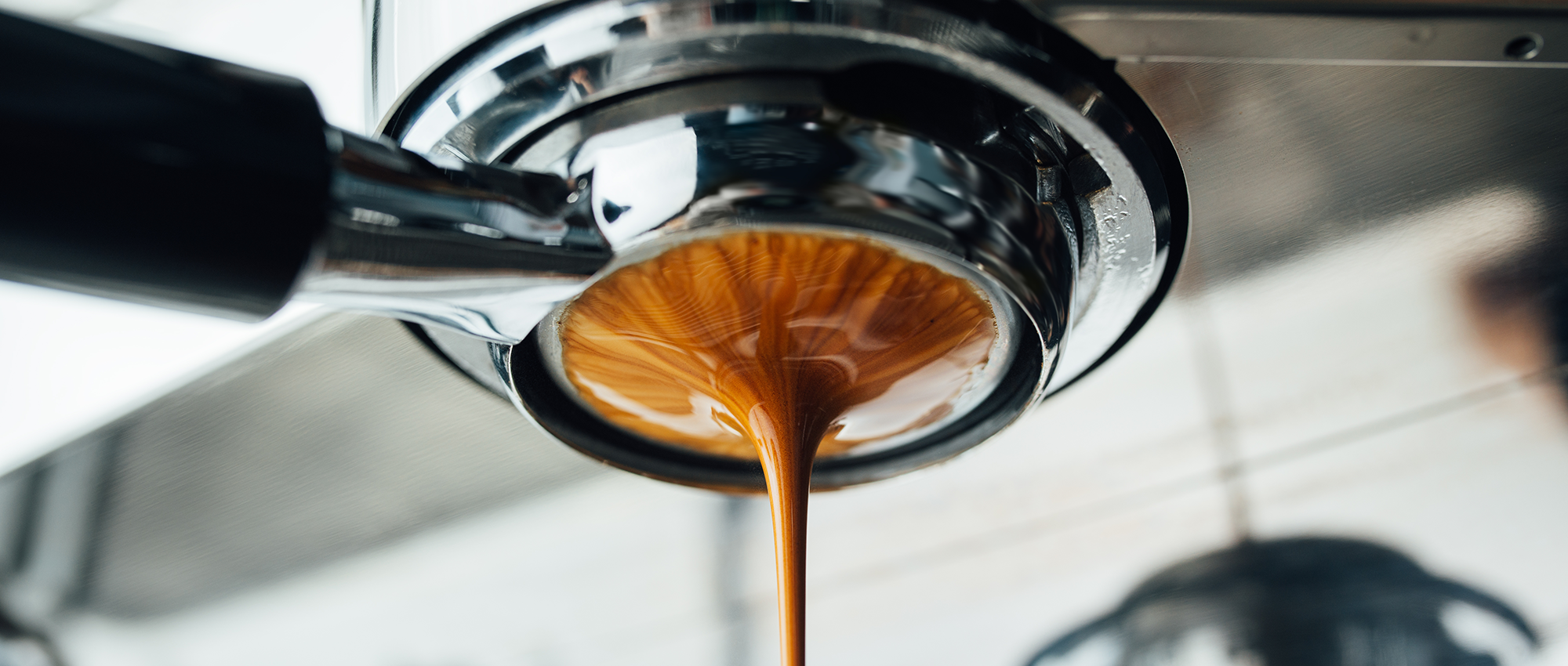Why Water Quality is Critical for Coffee and Espresso Brewing
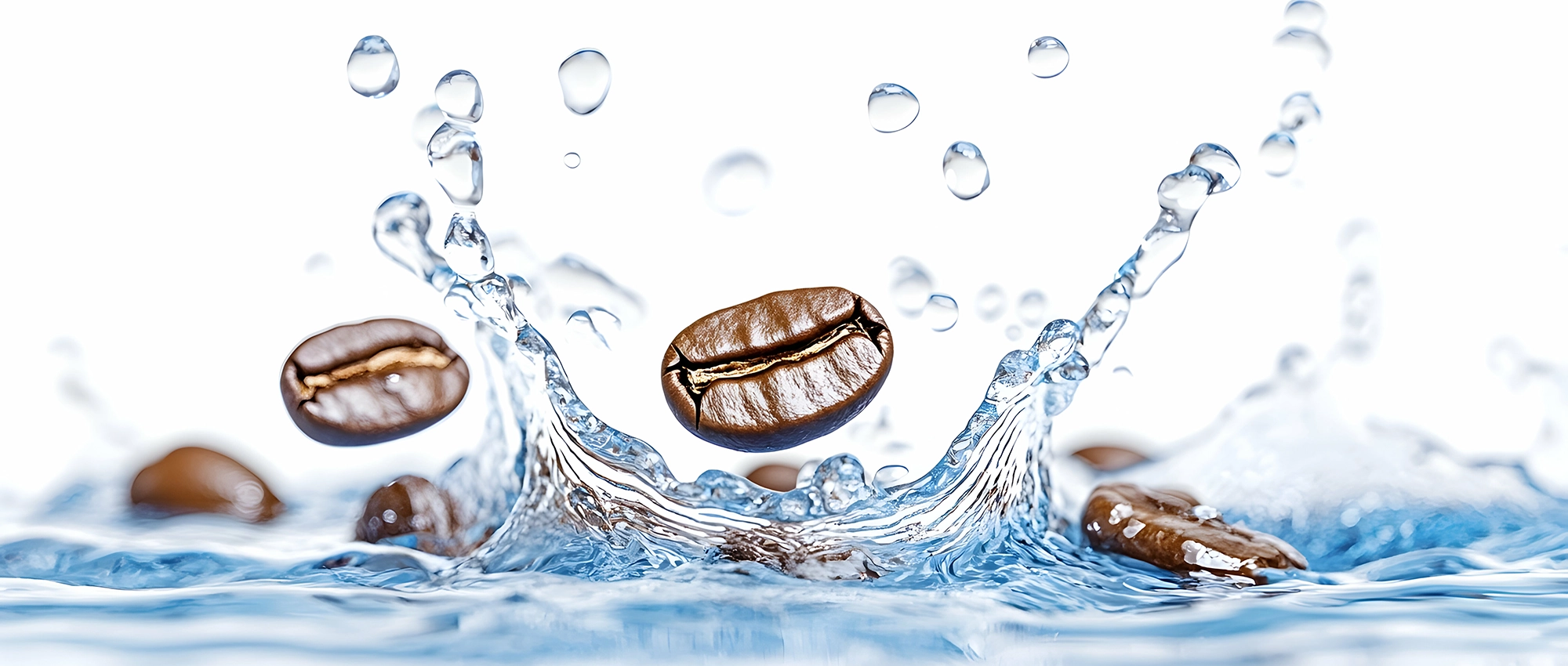
The Foundation of Great Coffee: Why Water Quality is Critical for Coffee and Espresso Brewing
Water represents over 98% of your finished coffee, yet it’s often the most overlooked component in achieving exceptional brewing results. While coffee professionals obsess over bean origins, roast profiles, and extraction techniques, many fail to recognize that water quality fundamentally determines both the flavor in your cup and the longevity of your expensive equipment. Understanding and controlling water quality isn’t just about taste, it’s about protecting your investment and ensuring consistent excellence in every cup.
The Science of Water in Coffee Extraction
Coffee brewing is essentially a complex extraction process where water acts as the solvent, dissolving and carrying hundreds of flavor compounds from ground coffee beans. The mineral content, pH level, and chemical composition of your water directly influence which compounds are extracted and how efficiently this process occurs.
Pure distilled water, while seemingly ideal, actually produces flat, lifeless coffee because it lacks the minerals necessary for proper extraction. Conversely, water with excessive mineral content can over-extract certain compounds while preventing others from dissolving properly, creating unbalanced flavors and bitter notes that mask coffee’s natural characteristics.
The Specialty Coffee Association recommends specific water standards for optimal brewing: total dissolved solids (TDS) between 75-150 parts per million, calcium hardness around 17-85 ppm, total alkalinity near 40 ppm, and a pH between 6.5-7.5. These parameters create the perfect chemical environment for balanced extraction while protecting equipment from damage.
How Water Minerals Affect Coffee Flavor
Calcium and magnesium are the primary minerals responsible for water hardness, and each plays a distinct role in coffee extraction. Calcium enhances the extraction of acidic compounds, contributing to brightness and clarity in the cup. However, excessive calcium can lead to over-extraction and harsh, bitter flavors that overpower subtle coffee notes.
Magnesium acts differently, promoting the extraction of coffee’s aromatic compounds and contributing to a fuller body and enhanced mouthfeel. The ideal ratio between calcium and magnesium creates a balanced extraction profile that showcases both clarity and complexity in the finished coffee.
Bicarbonate alkalinity serves as a buffer, neutralizing the natural acids in coffee. Proper alkalinity levels prevent coffee from becoming overly acidic while maintaining the brightness that defines exceptional espresso and coffee. Too little alkalinity results in sharp, sour flavors, while excessive alkalinity creates flat, dull coffee with muted acidity.
The interplay between these minerals is complex and delicate. Even small variations in mineral content can dramatically alter extraction efficiency and flavor development, which is why professional coffee operations invest heavily in water treatment systems that provide consistent, optimal water chemistry.
The Hidden Costs of Hard Water
Hard water poses significant threats to commercial coffee equipment that extend far beyond flavor concerns. The calcium and magnesium in hard water form scale deposits when heated, creating a cascade of problems that can devastate your equipment investment and operational efficiency.
Scale buildup begins immediately when hard water is heated in espresso machines, coffee brewers, and steam wands. These mineral deposits accumulate on heating elements, reducing their efficiency and forcing them to work harder to maintain proper temperatures. This increased workload leads to higher energy consumption and accelerated component failure.
In espresso machines, scale creates particularly severe problems. It narrows internal water passages, reducing flow rates and creating inconsistent pressure during extraction. Scale on heating elements causes temperature fluctuations that make consistent espresso extraction nearly impossible. The insulating properties of scale deposits force heating elements to operate at higher temperatures, significantly shortening their lifespan.
Steam wands suffer enormously from hard water exposure. Scale deposits create restrictions that reduce steam pressure and quality, affecting milk texturing capabilities. Internal scale buildup can completely block steam passages, requiring expensive repairs or replacement. The calcium deposits also provide breeding grounds for bacteria, creating hygiene concerns that can affect product quality and customer safety.
Boiler systems in commercial espresso machines represent the most vulnerable and expensive components affected by hard water. Scale accumulation on boiler walls reduces heat transfer efficiency and can cause hot spots that lead to metal fatigue and eventual failure. Replacing commercial espresso machine boilers often costs thousands of dollars and requires significant downtime.
Equipment Longevity and Maintenance Costs
The financial impact of untreated water extends beyond immediate repair costs. Scale buildup forces more frequent cleaning cycles, increasing chemical costs and labor requirements. Descaling procedures, while necessary, are harsh on equipment seals, gaskets, and internal components, potentially causing additional wear and premature failure.
Professional espresso machines operating with hard water may require descaling every few weeks instead of the monthly or quarterly schedules possible with proper water treatment. This frequent maintenance not only increases direct costs but also creates operational disruptions during peak service periods.
Component replacement becomes significantly more frequent with hard water use. Heating elements, pressure relief valves, solenoid valves, and pump components all suffer accelerated wear when exposed to scale deposits. The cumulative cost of these replacements can exceed the price of a comprehensive water treatment system within the first year of operation.
Energy efficiency also suffers dramatically with scale buildup. Studies show that just 1/8 inch of scale on heating elements can increase energy consumption by 25% or more. For high-volume operations, this efficiency loss translates to hundreds or thousands of dollars in additional utility costs annually.
The Critical Importance of Water Treatment
Implementing proper water treatment isn’t optional for serious coffee operations, it’s essential for both quality and profitability. Water treatment systems provide consistent water chemistry that enables reproducible extraction results while protecting equipment investments.
Quality water treatment eliminates the variables that make consistent coffee preparation challenging. When water chemistry remains stable, baristas can focus on perfecting their technique without compensating for daily variations in extraction efficiency caused by fluctuating mineral content.
Professional water treatment also enables coffee shops to showcase premium coffee beans properly. Single-origin coffees and complex blends can express their full flavor potential only when brewed with appropriately treated water. Untreated water masks subtle flavor notes and creates off-flavors that prevent customers from experiencing coffee as intended.
Blue Water Filtration: Advanced Protection Technology
Blue Water filtration systems represent cutting-edge technology in commercial water treatment, specifically designed for the demanding requirements of professional coffee operations. These systems address both scale prevention and chlorine removal while maintaining optimal mineral balance for superior extraction.
The Blue Water advantage lies in its multi-stage filtration approach that targets specific contaminants without stripping beneficial minerals. The system effectively removes chlorine and chloramines that can create off-flavors while preserving the calcium and magnesium levels necessary for proper extraction. This selective filtration ensures consistent water chemistry that enhances coffee flavor rather than diminishing it.
Blue Water systems incorporate advanced scale prevention technology that doesn’t rely solely on traditional softening methods. Instead of removing all minerals, the system modifies mineral structure to prevent scale formation while maintaining extraction-friendly water chemistry. This approach provides equipment protection without sacrificing coffee quality.
The reliability of Blue Water systems makes them ideal for high-volume commercial applications. The robust construction and long-lasting filter elements minimize maintenance requirements while providing consistent performance throughout extended service intervals. This reliability is crucial for operations that cannot afford water quality interruptions during peak business periods.
EverPure by Pentair: Industry-Leading Filtration Excellence
EverPure water filtration systems by Pentair have earned their reputation as the gold standard in commercial foodservice water treatment. With decades of innovation and refinement, EverPure systems deliver the consistent water quality that professional coffee operations demand.
The EverPure approach combines multiple filtration technologies in a single, compact system. Their proprietary Micro-Pure filtration media removes chlorine taste and odor while reducing scale-forming minerals to safe levels. The system maintains essential minerals for proper extraction while eliminating contaminants that can affect flavor or equipment performance.
One of EverPure’s greatest strengths is their extensive product line that addresses specific water challenges. Whether dealing with extremely hard water, high chlorine levels, or unusual local contaminants, EverPure offers specialized solutions tailored to regional water conditions. This flexibility ensures optimal performance regardless of local water quality variations.
The self-contained cartridge design of EverPure systems simplifies maintenance while ensuring consistent performance throughout the filter’s lifespan. The shut-off feature automatically stops water flow when cartridge replacement is needed, preventing degraded water quality from affecting coffee or equipment. This failsafe protection provides peace of mind for busy operations where water quality monitoring might otherwise be overlooked.
Why Bean and Brew Recommends Both Systems
At Bean and Brew Technologies, our extensive experience with commercial coffee operations has shown us that different environments require different solutions. We recommend and sell both Blue Water and EverPure systems because each offers unique advantages that make them ideal for specific applications and water conditions.
Blue Water systems excel in situations where maintaining natural mineral content is paramount for coffee flavor development. Their advanced scale prevention technology makes them particularly valuable for operations using extremely hard water where traditional softening would over-treat the water and diminish extraction quality.
EverPure systems provide unmatched reliability and consistency, making them ideal for high-volume operations that demand absolute dependability. Their proven track record in demanding commercial environments and comprehensive local support network make them the preferred choice for operations where downtime simply isn’t acceptable.
Our dual recommendation approach ensures that every client receives the optimal water treatment solution for their specific needs, water conditions, and operational requirements. We analyze local water conditions, assess equipment requirements, and consider operational factors to recommend the system that will deliver the best long-term value and performance.
The Investment That Pays for Itself
Quality water treatment represents one of the most cost-effective investments any coffee operation can make. The combination of improved coffee quality, reduced maintenance costs, extended equipment life, and energy savings typically provides complete return on investment within the first year.
The consistency that proper water treatment provides also enhances staff training and reduces variability in product quality. When water chemistry remains stable, new baristas can focus on developing their skills without fighting against daily variations in extraction behavior caused by fluctuating water conditions.
Customer satisfaction improves dramatically when coffee quality becomes consistent and optimal. The enhanced flavor profiles achievable with properly treated water often justify premium pricing and increased customer loyalty, directly impacting profitability.
Conclusion: Water as Your Foundation
Water quality forms the invisible foundation upon which all coffee excellence is built. Ignoring this critical component undermines every other investment in quality coffee, skilled staff, and expensive equipment. By implementing proper water treatment with proven systems like Blue Water or EverPure, coffee operations protect their investments while unlocking the full potential of their coffee programs.
The choice between systems should be based on specific water conditions, operational requirements, and quality goals. Both Blue Water and EverPure offer proven solutions that transform ordinary water into the foundation for extraordinary coffee. The question isn’t whether you can afford to invest in water treatment, it’s whether you can afford not to.
Gary Downey
Gary Downey
Tags :
Coffee U Sunday: Weekly Coffee Business Education
Get expert coffee insights delivered to your inbox every Sunday. Equipment guides, brewing tips, business strategies, and industry trends to help your business succeed.
Categories
Categories
- Coffee Brewers (1)
- Coffee Business Success (9)
- Coffee Grinders (1)
- Coffee Shop Owners (8)
- Coffee Technology (3)
- Cold Brew Coffee (2)
- Espresso Machines (10)
- Espresso Shots (3)
- La Marzocco (2)
- Maintenance & Service (4)
- Specialty Coffee Drinks (3)
- Water Treatment (1)
📚 Equipment Guides
Comprehensive breakdowns of different machine types, helping you make informed purchasing decisions
 Maintenance Tips
Maintenance Tips
Professional techniques to keep your equipment running at peak performance and extend its lifespan
 Brewing Science
Brewing Science
Understand the ‘why’ behind extraction, temperature stability, and equipment design
 Troubleshooting Help
Troubleshooting Help
Common problems and solutions to minimize downtime and service calls
 Business Insights
Business Insights
ROI calculations, workflow optimization, and equipment selection for your specific needs
 Technology Explained
Technology Explained
Demystifying features like PID control, pressure profiling, and heat exchange systems
Coffee U Sunday: Weekly Coffee Business Education
Get expert coffee insights delivered to your inbox every Sunday. Equipment guides, brewing tips, business strategies, and industry trends to help your business succeed.
Share
Use our search function or browse by category to find exactly what you need. Can’t find an answer? Contact us directly, your question might inspire our next Coffee U article! As we grow, so will this resource, shaped by the real needs of coffee professionals like you.
Start exploring Coffee U today and discover why Bean & Brew Technologies is committed to elevating the coffee industry through education and exceptional service.

